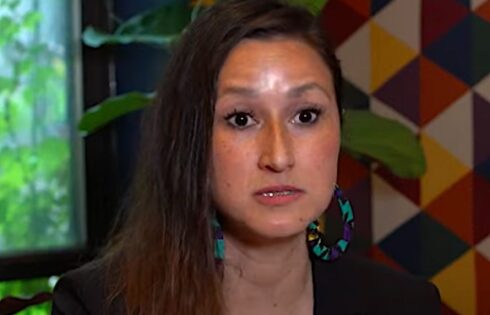
A first-year seminar class on tap this fall at the University of Wisconsin–Green Bay promises to merge civil rights with pollution.
The course, called “Green Lives Matter,” aims to teach students about the Environmental Justice Movement, its online description states.
The movement argues that the effects of capitalism force poor and minority communities to live in dangerous and unhealthy situations.
Students enrolled in the class will study the “Flint lead contamination, migrant farm worker pesticide exposure, Cancer Alley (Louisiana), mining on tribal lands, Hurricane Katrina, Alaskan natives, urban environmental harms, and others,” the course’s online description states.
The name of the course, a play on Black Lives Matter, seeks to teach freshmen how “the Environmental Justice Movement now marks a worldwide grassroots effort for social justice,” its description states. “This course represents an effort to learn about the Environmental Justice Movement by studying its history, causes, and the struggles of people shaping the movement.”
The movement is led “primarily by people of color, women, and blue collar sectors of society,” it adds.
The professor teaching the course, Dr. Elizabeth Wheat, as well as the campus spokesperson, did not respond to requests for more information on the class.
First-year seminars are often esoteric in nature, with small class sizes, and typically hone in on narrow and unique topics designed to introduce new students to college-level courses.
In addition to Green Lives Matter, another seminar to be offered at UW-Green Bay this fall is called “Food Politics,” in which students will learn “that eating is very much a political act,” its description states.
Students will examine “the politics and ethics of what we eat, as well as the environmental and social consequences of our food choices,” it adds, noting
topics will include food policy, animal welfare, food waste, food scarcity, the slow food movement, and “the treatment of those working in the food industry.”
The UW-Green Bay courses are not necessarily unique. Many professors and universities have embraced the environmental justice movement as a way to argue that capitalism abuses poor and minorities through pollution and other factors.
“College students actually earn degrees in the field, and their research is used to support and advance Democratic and socialist policies,” The College Fix reported in 2015.
Last year, the University of California-Riverside even launched a bachelor of science in sustainability and environmental justice.
“‘The environment’ has emerged as the next vehicle for wealth transfer and litigation demanding some form of ‘justice,’” Competitive Enterprise Institute fellow Christopher Horner has said.
MORE: Professors argue capitalism abuses poor minorities
Like The College Fix on Facebook / Follow us on Twitter
IMAGE: Shutterstock






Please join the conversation about our stories on Facebook, Twitter, Instagram, Reddit, MeWe, Rumble, Gab, Minds and Gettr.